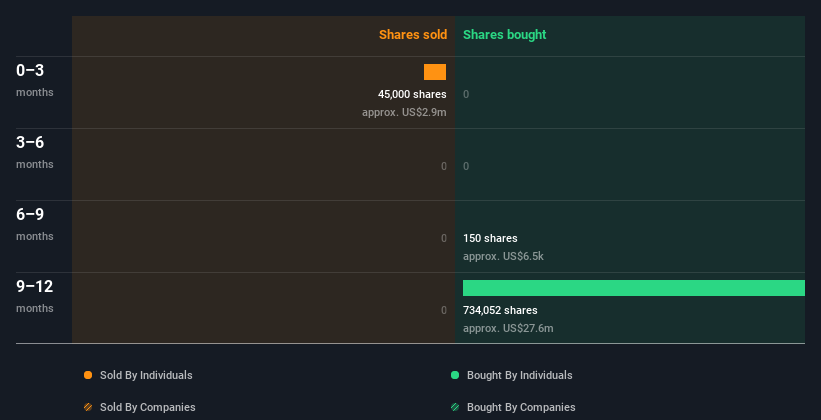Should You Take Comfort From Insider Transactions At Mercury General Corporation (NYSE:MCY)?
We often see insiders buying up shares in companies that perform well over the long term. On the other hand, we'd be remiss not to mention that insider sales have been known to precede tough periods for a business. So shareholders might well want to know whether insiders have been buying or selling shares in Mercury General Corporation (NYSE:MCY).
Do Insider Transactions Matter?
It's quite normal to see company insiders, such as board members, trading in company stock, from time to time. However, most countries require that the company discloses such transactions to the market.
We don't think shareholders should simply follow insider transactions. But it is perfectly logical to keep tabs on what insiders are doing. For example, a Columbia University study found that 'insiders are more likely to engage in open market purchases of their own company’s stock when the firm is about to reveal new agreements with customers and suppliers'.
View our latest analysis for Mercury General
The Last 12 Months Of Insider Transactions At Mercury General
Over the last year, we can see that the biggest insider purchase was by Executive Chairman of the Board George Joseph for US$6.0m worth of shares, at about US$37.80 per share. Although we like to see insider buying, we note that this large purchase was at significantly below the recent price of US$62.47. Because the shares were purchased at a lower price, this particular buy doesn't tell us much about how insiders feel about the current share price.
Happily, we note that in the last year insiders paid US$27m for 734.20k shares. But insiders sold 45.00k shares worth US$2.9m. In the last twelve months there was more buying than selling by Mercury General insiders. You can see the insider transactions (by companies and individuals) over the last year depicted in the chart below. If you click on the chart, you can see all the individual transactions, including the share price, individual, and the date!
There are plenty of other companies that have insiders buying up shares. You probably do not want to miss this free list of growing companies that insiders are buying.
Insiders at Mercury General Have Sold Stock Recently
The last quarter saw substantial insider selling of Mercury General shares. In total, Executive Chairman of the Board George Joseph sold US$2.9m worth of shares in that time, and we didn't record any purchases whatsoever. In light of this it's hard to argue that all the insiders think that the shares are a bargain.
Insider Ownership of Mercury General
I like to look at how many shares insiders own in a company, to help inform my view of how aligned they are with insiders. Usually, the higher the insider ownership, the more likely it is that insiders will be incentivised to build the company for the long term. Mercury General insiders own 52% of the company, currently worth about US$1.8b based on the recent share price. Most shareholders would be happy to see this sort of insider ownership, since it suggests that management incentives are well aligned with other shareholders.
So What Do The Mercury General Insider Transactions Indicate?
An insider sold stock recently, but they haven't been buying. In contrast, they appear keener if you look at the last twelve months. We are also comforted by the high levels of insider ownership. So we're not too bothered by recent selling. So while it's helpful to know what insiders are doing in terms of buying or selling, it's also helpful to know the risks that a particular company is facing. For instance, we've identified 2 warning signs for Mercury General (1 shouldn't be ignored) you should be aware of.
Of course, you might find a fantastic investment by looking elsewhere. So take a peek at this free list of interesting companies.
For the purposes of this article, insiders are those individuals who report their transactions to the relevant regulatory body. We currently account for open market transactions and private dispositions, but not derivative transactions.
This article by Simply Wall St is general in nature. It does not constitute a recommendation to buy or sell any stock, and does not take account of your objectives, or your financial situation. We aim to bring you long-term focused analysis driven by fundamental data. Note that our analysis may not factor in the latest price-sensitive company announcements or qualitative material. Simply Wall St has no position in any stocks mentioned.
Have feedback on this article? Concerned about the content? Get in touch with us directly. Alternatively, email editorial-team (at) simplywallst.com.

